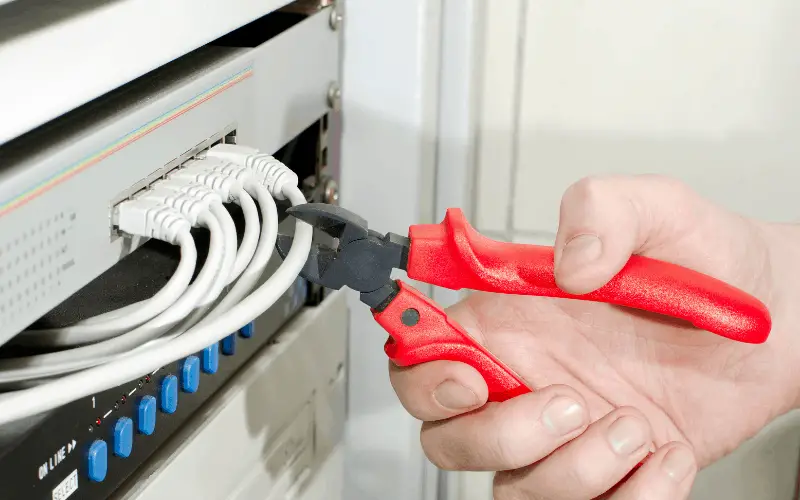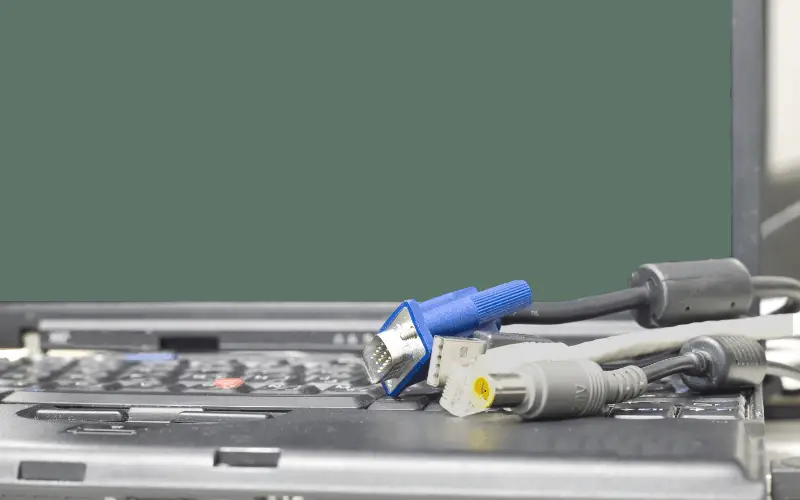Published Date: October 17, 2020
Last Updated on June 22, 2023 by Camper Front
Should I disconnect my RV battery when plugged in? This is one of the numerous questions I often get asked by RV lovers. Well, there’s no straight answer to this question.
The different terms that come with RV power can make understanding its way of operation really hard. However, this article is here to the rescue, so keep on reading.
Table of Contents
Should I Disconnect My Rv Battery When Plugged In?
Before we go into the determinants of this question’s answer, let’s look at some common confusing terms that can make it hard for you to understand the whole process.
Understanding RV Power Basic Terms
Battery Type
There are different types of RV batteries, but the one majorly used is the deep-cycle lead-acid battery.
Another example is the lithium battery, which has started to gain some ground in the RV world due to its fewer maintenance requirements, and they are more compatible with solar panels. But we’re going to be talking about lead-acid batteries for this article.
Read Also: Fastest Way To Charge RV Battery
Rv Power System
RVs are equipped with two different power systems; there are 120-volts alternating current (AC) and 12-volt direct current (DC).
12-Volt Direct Current (DC)
The 12 Volt DC (Direct Current) powers the lighting on the outside of your camper that deals with driving (or towing) it around on the roads.
12 Volt DC or direct current is powered by the RV batteries, and its electricity flows in just one direction, from negative to positive. 12-volt DC electricity is stored inside RV batteries and then used to power components, devices, and appliances that operate off of 12 Volts.
120-Volts Alternating Current (AC)
120 Volt alternating current AC is the same electricity used in your household. AC electricity alternate or reverses direction 60 times per second, or 60 hertz. AC electricity powers all of the 120-volt appliances and electronic equipment in your RV.
Your Rv can be connected to shore power from the campground’s electrical grid through either 30 amp or 50 amp power chargers to get AC power.
Now when your RV is plugged in, the shore power then passes through a converter, which then turns it from AC power to DC power, which is then utilized through the RV’s battery.
Leaving Your RV Plugged In, Wrong Or Right?

Leaving your camper plugged in all the time is not wrong IF it is in use for a short camping trip. However, leaving your RV plugged in while You put it into storage or while you are away on a long trip is very detrimental to the lifespan of the battery.
For a long-term use of your battery to be near anywhere possible, you have to make use of an RV battery tender or have the newer model of converters that is equipped with a smart charging system in order to maintain optimal voltage.
In addition to that, the location and temperature of the storage area of a battery have a great impact on the amount of power a lead-acid battery loses over time.
Factors That Affect On Your Battery Lifespan
Prevent Salfation
Salfation is caused when you Allow your battery to become depleted lower than 50%; this causes the buildup of lead sulfate between the plates, and this further leads to the inhibition of current flow.
The insides of a lead-acid battery are filled with an electrolyte solution which composes of sulfuric acid and water; the sulfur aids the movement of current through the battery plates.
Also, Allowing your battery to get become depleted lower than 80% constantly will push the acid to the bottom of the battery while the water floats at the top, and this also causes salfation.
To prevent this from happening, it is highly recommended that you never let your battery get depleted to lower than 80% charge.
Switching Off The Battery Disconnect Switch When The Rv Is Not In Use
When storing your RV, you may feel that total disconnection of appliances should do the job and that there shouldn’t be any drain on the battery.
However, there are small or “parasitic” loads like LP gas detectors, clocks, or appliance circuit board that keeps discharging the battery over time.
So you want to make sure that before storing your RV, the battery disconnect switch has been turned off, and you can also go ahead and try trickle charging your batteries while they are in storage; this helps to keep the battery at full charge.
Exposure To High Temperatures And Overcharging
Allowing your battery to continue charging even when it is full is also very detrimental to the battery’s lifespan. How? Well, the battery, even though it’s fully charged, still receives what is known as trickle charges.
These are not full bursts of charging power because the battery no longer needs a charge. However, though: the battery is still getting power.
When the battery receives trickle charges too many times, it causes internal chemistry to change for the worst. So letting your battery continue charging even when it has reached its full capacity is something you don’t want to indulge in.
Also, during periods like summer or when the battery has been in constant use, you need to check the battery’s electrolyte level frequently, and when it gets below normal, top it off with distilled water.
Cleaning The Connections
If the battery has any sign of corrosion or grime on any of the connections, you need to remove it as soon as possible to prevent the corrosion from setting in and expanding.
You can clean away corrosion with a simple mixture of baking soap and water with a firm bristle brush to gently remove every sign of corrosion from the battery.
Before doing this cleanup, you want to make sure you put on safety gloves for protection against the corrosive acid.
Storage Temperature
When putting your RV into storage, you want to make sure The temperature of the storage place is between 32 and 80 degrees Fahrenheit. It should also be a cool and dry place.
And even while the battery is in storage, try to keep checking it constantly and recharging it when necessary.
Read Also: Is it Proper to Leave RV Inverter On All The Time?
Conclusion
If you have been wanting to know if you should disconnect your RV battery when plugged in, this is a question that can only be answered by your current situation.
However, you do not want to leave your RV plugged in for a very long period of time to avoid reducing the lifespan of your RV battery.

